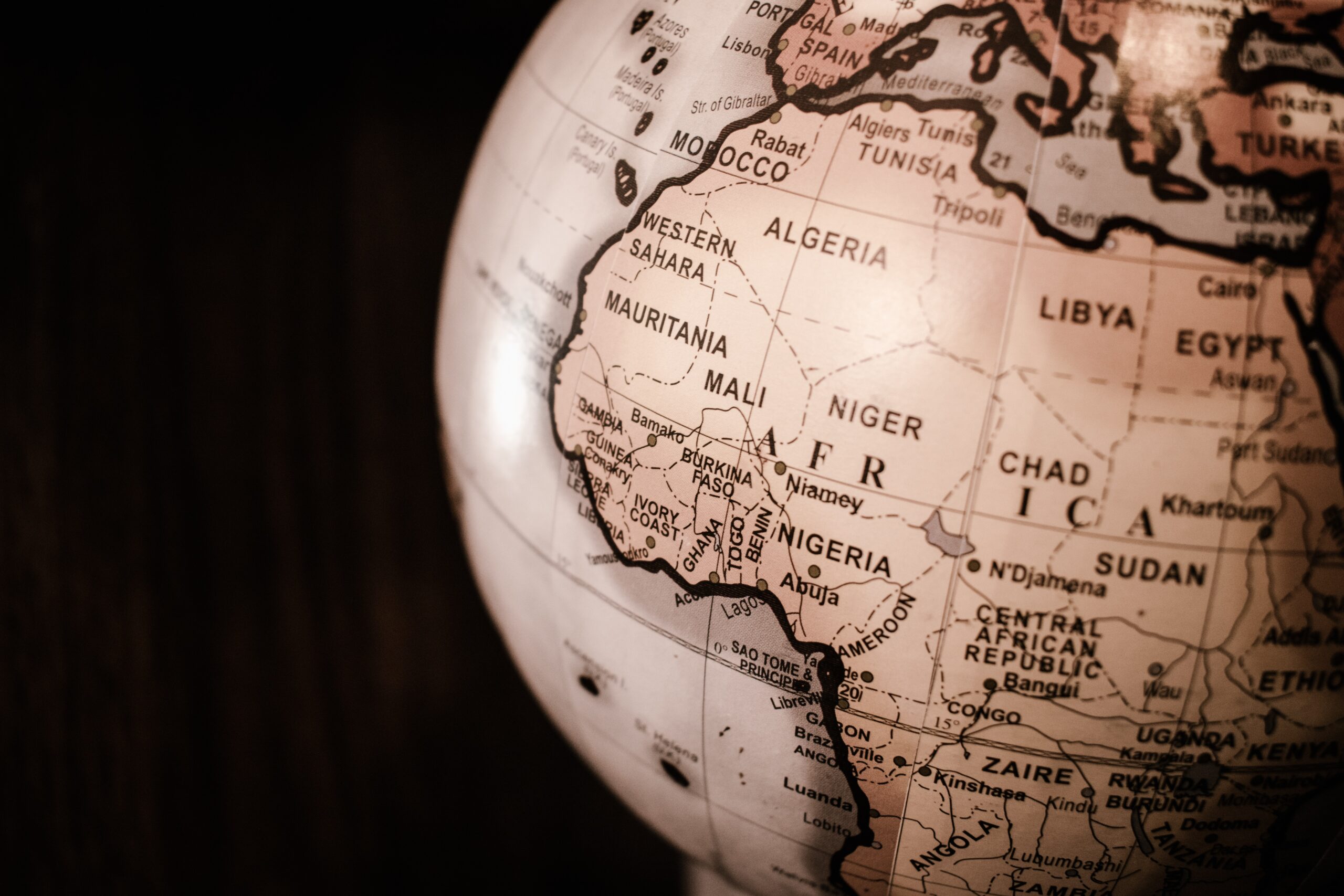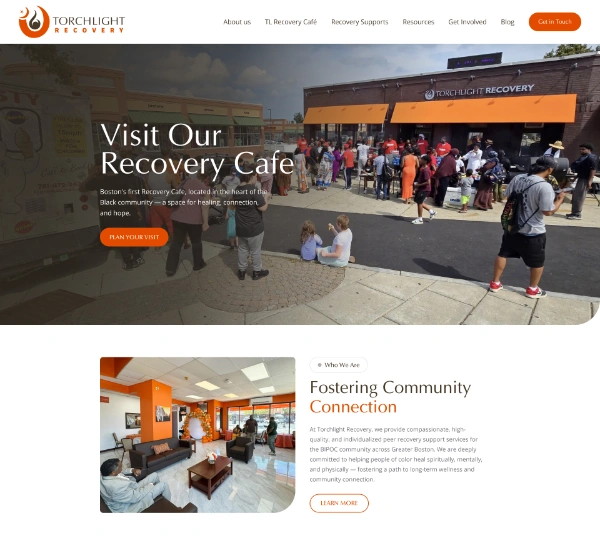Introduction
I’ve had the privilege of serving as an organizational development consultant and leadership coach for over two decades. The challenges and rewards of helping teams reach their full potential have made for an enriching career journey. However, the past year has presented an unsettling trend that even my years of experience did not prepare me for—unprecedented levels of distrust and negative team dynamics. This issue is not isolated to my consulting experience alone; I’ve had conversations with colleagues who are experiencing similar dynamics within their teams. The universality of this challenge underscores its importance and the need for earnest dialogue around it.
However, trust is fragile. It’s often said that trust is hard to earn but easy to lose, and this axiom holds particularly true in times of change. Staff turnover, organizational restructuring, or even a shift in team responsibilities can create an atmosphere of uncertainty. During these periods, even small acts—like gossip, misunderstandings, or lack of transparent communication—can erode the hard-earned trust that was once present. And once trust starts to erode, the unraveling can happen swiftly, affecting every aspect of team dynamics and effectiveness.
So, as we face these challenges head-on, let’s examine the ways in which we can not only stem the tide of eroding trust but also actively engage in rebuilding it. We owe it to ourselves and the communities we serve to foster environments that are not only functional but also emotionally and psychologically safe for everyone involved.
Common Factors that Erode Trust: A Personal and Professional Lens
In one of my current consulting projects, I’ve found myself in the unfamiliar territory of questioning others’ intentions—a behavior that is unusual for me. I attribute this change to my own experience of microaggressions, those subtle digs and snubs that often fly under the radar but leave a lasting impact. It’s disconcerting to feel that you’re on the receiving end of gossip, to have your intentions questioned, and to experience role ambiguity. These factors have not only eroded my trust but also made me reflect on how quickly trust can deteriorate within a team.
Poor Communication: The Root of Misunderstanding
Lack of clear communication is a significant factor in the erosion of trust. Ambiguity can lead to misunderstandings, which in turn lead to speculation and the creation of ‘information silos.’ When communication channels are not transparent, it’s easy for misinformation to spread, further eroding trust. Additionally, poor communication can be a vicious cycle: as trust diminishes, team members may feel less inclined to communicate openly, exacerbating the issue. The absence of effective communication often leaves room for assumptions and stereotypes to fester, further straining relationships and the integrity of the team.
Microaggressions: The Silent Trust Breaker
Microaggressions are insidious because they often go unnoticed or unaddressed. Yet, they have the power to chip away at the foundation of trust. If team members feel undervalued or targeted, even subtly, they are less likely to engage fully in their work or collaborate openly with others. Over time, the cumulative effect of microaggressions can be devastating, leading to a culture of defensiveness and withdrawal. Those who experience microaggressions may start to question not only the intentions of their colleagues but also their place and value within the team, reducing their overall engagement and commitment.
Staff Turnover: A Vacuum of Uncertainty
In my years of experience, one of the most significant factors affecting team trust is staff turnover. When experienced team members depart, it creates a vacuum that often gets filled with uncertainty and speculation. Questions like, “Who will take on their responsibilities?” or “How will this affect my role?” become pervasive, planting seeds of doubt and instability. But it’s not just the departure that’s disruptive; the period of adjustment that follows can also be fraught with tension. New team dynamics have to be established, roles have to be redefined, and this unsettled atmosphere can significantly impede team cohesiveness and trust.
Gossip: The Domino Effect
Gossip is not just idle talk; it’s a trust killer. I’ve been both the subject of gossip and a witness to its destructive power. A single rumor can snowball, affecting multiple team members and poisoning the work environment. Gossip shifts focus from collective goals to personal vendettas, significantly affecting team morale and productivity. Beyond the immediate harm, gossip also has a long-lasting impact. Once the seeds of gossip are sown, they create an environment of suspicion and divisiveness that can take a long time to heal, necessitating deliberate and sustained effort to rebuild trust.
Strategies to Rebuild Trust: A Guiding Framework
Navigating through a climate of mistrust and negative dynamics can be incredibly challenging, both emotionally and professionally. Yet, the health of a team is vital for the success of any project or organization. Trust isn’t merely a ‘nice-to-have’ but a ‘must-have’ component for effective collaboration, innovation, and well-being in the workplace. Therefore, rebuilding trust should be a top priority.
The following strategies provide a multifaceted approach to mend the frayed fabric of trust. These are not quick fixes but transformative actions aimed at creating a sustainable environment where trust can flourish again. From revisiting shared goals to challenging our narratives, these strategies serve as a guiding framework to regain what was lost and build an even stronger foundation for the future.
Revisit Shared Goals and Values
A shared vision can act as the North Star for a team, helping to navigate through the complexities and challenges of any project. Revisiting these objectives and core values is not just a symbolic act but an essential exercise in re-aligning and re-energizing the team. During times of distrust or turmoil, team members may lose sight of these objectives, focusing instead on individual grievances or concerns.
Use team meetings, off-sites, or even one-on-one sessions to have an open discussion about what everyone is working towards collectively and individually.
This alignment can significantly aid in dissolving interpersonal tension and refocus the team’s energy on what genuinely matters. It’s worth mentioning that in more complex or persistent cases of team discord, it may be beneficial to bring in an external professional consultant. Someone specialized in group dynamics can offer an objective perspective, facilitating the difficult conversations that are often necessary for realignment and aiding the team in operationalizing their core values.
Open Dialogue and Transparent Communication
In the digital age where communication tools are abundant, it’s ironic that poor communication remains a prevalent issue in many workplaces. The cornerstone of trust, transparent communication, can clear misunderstandings before they fester into long-lasting issues. Utilize team meetings to discuss not just tasks and deadlines, but also feelings, concerns, and suggestions. Open forums where team members feel safe to speak can help prevent future misunderstandings. Implementing a culture of “over-communication” where team members share their challenges and accomplishments can also go a long way in bridging gaps and fostering trust.
Avoiding The Dangers of a Single Story
I often reference the powerful concept of “The Dangers of a Single Story” by Nigerian poet and writer Chimamanda Adichie in my work. Adichie cautions against the risks of understanding people or situations from a single narrative. When trust is eroded, often, it is because team members have confined each other to single stories—through gossip, misunderstandings, or assumptions. This limited perspective can distort our understanding of situations and individuals, fueling a cycle of distrust. In the midst of conflict or gossip, pause and ask yourself: “Am I operating from a single story? What lens am I using to view this situation?”
Challenging our single stories can open the door to empathy, understanding, and eventually, forgiveness. Not only can this enrich our individual outlooks, but it can also transform the collective story of the team from one of mistrust to one of collaboration and respect. If you are interested, I provide the link to her Ted Talk at the end of this article.
Invest in a Team Retreat
In my experience as a consultant and coach, I’ve often recommended team retreats as a powerful mechanism for trust-building, both for my own team and the clients I’ve worked with. Stepping out of the daily grind and into a new environment can act as a catalyst for change, breaking down barriers and enabling fresh perspectives. A well-planned retreat can offer a diverse mix of structured activities aimed specifically at trust-building, along with open forums for candid discussion. It’s an occasion to combine professional development with personal reflection, allowing team members to process their thoughts and feelings away from the regular pressures of work. This dedicated time can help team members drop their guards, understand each other better, and form meaningful relationships that translate into a more cohesive work environment.
While the investment for such a retreat might seem significant in terms of time and resources, the returns are often invaluable. The rejuvenation of team morale and the re-establishment of trust can pave the way for more effective collaboration and a more harmonious work environment. Moreover, the shared experiences from the retreat serve as a lasting reminder of the team’s resilience and capability to grow and adapt, setting a constructive tone for future endeavors.
Encourage Mutual Feedback
Feedback is a powerful tool for growth, but only when used correctly. In a workplace devoid of trust, feedback can easily be perceived as personal attacks or criticisms. Cultivate a culture where feedback is seen as a mechanism for improvement and growth. Create structured environments, like regular performance reviews or project post-mortems, where constructive feedback can be given and received. Reinforce the idea that everyone is in a constant state of learning, and that feedback is an invaluable resource for personal and professional development.
Invest in Team-Building Activities
The impact of well-designed team-building activities can never be underestimated. These activities can serve as both a diagnostic tool to identify areas of concern and as a platform for improving teamwork and trust. Choose activities that mirror the challenges your team faces. For example, if communication is an issue, select exercises that require efficient and clear communication. If trust is lacking, activities that require vulnerability and interdependence can help break down barriers.
Make Amends and Forgive
The ability to make amends and forgive is often what distinguishes a mature, resilient team from a fragile one. It’s essential to acknowledge that everyone makes mistakes; what matters is how we respond to them. Leaders should set the example by owning their mistakes and showing how to make amends. Similarly, team members should be encouraged to apologize when they’re wrong and, more importantly, to forgive others. A culture of accountability and forgiveness can turn potentially destructive incidents into opportunities for growth and increased trust.
Practice Consistency
Consistency is the glue that holds together the building blocks of trust. Consistent actions over time demonstrate reliability, making it easier for trust to be established. This includes consistent communication, consistently meeting deadlines, and consistently being respectful and fair. It also means being consistent in your reactions, so that team members know what to expect from you, further establishing a sense of safety and trust.
By prioritizing these principles and practices, we’re not just setting ourselves up for a successful project or quarter; we’re investing in the long-term success and health of our team. Trust is the foundation upon which all else is built. Ensuring that foundation is strong is one of the most important things we can do as team members and leaders.
Prioritizing and Operationalizing Inclusion, Equity, and Justice
In a world where the language of inclusion, equity, and justice has increasingly become part of organizational vernacular, the real challenge lies in moving from rhetoric to reality. While these terms are often proudly displayed in mission statements and internal communications, the lived experience within many teams often tells a different story. The gap between what is said and what is done can be a significant trust breaker, causing not just skepticism but also undermining the social fabric of the team.
The erosion of trust has recently hit home on a deeply personal level; I ended a long-term friendship and professional relationship due to gossip and disparaging comments that were made about me. This experience was deeply painful and emotionally taxing, but it compelled me to give more in-depth thought to the complexities of trust in both personal and professional relationships.
In my role, I’ve observed that trust is the cornerstone of any successful team. It’s not just a feel-good factor; it’s the lubricant that keeps the engine of teamwork running smoothly. But recently, the erosion of trust has become palpable, affecting not just team morale but also the ability to deliver successful outcomes. I wish I could pinpoint one definitive reason for this, but the causes are multifaceted and deeply interconnected.
As we navigate this article, I invite you to join me on an exploratory journey. Together, we’ll explore why trust is crucial, how it erodes – especially during times of change, and strategies to rebuild it. The goal is not just to identify problems but to offer actionable insights that pave the way for healing and rebuilding trust within teams. Whether you’re a team leader, a member of a team experiencing a trust deficit, or someone interested in organizational dynamics, this article aims to equip you with the understanding and tools you need to forge stronger, more resilient teams.
Stay with me, for this is a topic that has become dear to my heart for both professional and deeply personal reasons. Let’s explore, examine, and hopefully find a path toward restoring what is often the most fragile but essential component of teamwork: trust.
The Critical Importance of Trust
Trust is not just an abstract ideal; it is the concrete foundation upon which teams build their collective aspirations. It’s the invisible glue that holds everyone together, allowing for open communication, collaborative problem-solving, and a shared sense of purpose. In many types of environments where the stakes are high, trust is not just a virtue but a necessity. When trust exists within a team, members feel safe to express ideas, take calculated risks, and bring their full selves to work.
Firstly, it’s crucial to acknowledge that inclusion, equity, and justice are more than buzzwords; they should be core values that are operationalized into every facet of team dynamics and organizational policies. Inclusion goes beyond ensuring diverse representation; it’s about creating an atmosphere where each member feels genuinely seen, heard, and valued. An inclusive environment inherently fosters psychological safety, a bedrock for trust.
Equity and justice extend beyond merely fair treatment. They involve recognizing and addressing systemic inequalities that may exist, not just in opportunities but also in outcomes for team members. When there’s a trust deficit, it often reveals these fractures in the system, which can have significant implications on team dynamics and how members view the organization. For these values to become more than just organizational jargon, leadership must be held accountable for their realization. This accountability could include setting clear, measurable goals related to diversity, equity, and inclusion (DEI), and then transparently tracking and reporting progress. Regular audits or assessments can shine a light on areas that require immediate action.
Continuous education and training on DEI matters should be a standard part of team development. This is not a one-off but a lifelong commitment that evolves to meet the needs of the organization and its members. Open and honest communication channels should be maintained, allowing for feedback loops where team members can safely voice concerns and offer solutions.
In essence, embedding inclusion, equity, and justice into the organizational culture does more than restore trust; it creates stronger, more resilient teams that are equipped to meet challenges head-on. The investment in making these values a lived reality will yield dividends not just in enhanced team morale but in the overall success and sustainability of the organization
The Imperative of Psychological Safety in All Workspaces
Psychological safety is a term that has gained considerable traction in organizational behavior and management sciences, first identified by Amy Edmondson. It refers to the environment in which employees feel genuinely heard, valued, and safe in taking interpersonal risks. These risks could be as simple as admitting a mistake, proposing a new idea, or even questioning a team’s approach to a project.
Psychological safety is not limited to specific sectors or high-stakes work environments; it is universal and applies to every workplace.
In today’s complex and rapidly changing work environments, psychological safety is not just a “nice-to-have,” but a “must-have” for fostering innovation, collaboration, and overall employee well-being.
Without psychological safety, employees may become disengaged, reluctant to share their thoughts, or even fearful, all of which contribute to an erosion of team trust and cohesion.
In a psychologically safe workspace, trust tends to grow organically. This relationship is mutually reinforcing as trust builds, it enhances psychological safety, and vice versa. A psychologically safe environment fosters an atmosphere where team members feel comfortable being themselves, which in turn promotes authentic relationships and deeper trust. Conversely, a lack of psychological safety can severely erode trust, making team members more guarded, less engaged, and ultimately less effective.
Building a Psychologically Safe Environment
Creating a psychologically safe environment requires consistent efforts from everyone, particularly leadership. Leaders need to set the tone by openly valuing and inviting diverse perspectives, admitting their own mistakes, and treating failure as an opportunity for learning rather than as a cause for punishment. Regular check-ins, feedback sessions, and open-door policies can further contribute to a culture of psychological safety.
When psychological safety is prioritized, teams can operate at their fullest potential. People bring their ‘whole selves’ to work, which enriches the diversity of thought, fosters innovation, and builds a resilient, unified team. In this ideal environment, trust becomes more than just a concept—it becomes the lived experience of every team member. By placing emphasis on both trust and psychological safety, organizations can cultivate workspaces where employees not only thrive but also find deep satisfaction and meaning in their work.
An Invitation to Exploration and Shared Discovery
The journey to restore trust within a team—especially in workplaces that are emotionally charged or undergoing significant changes—is neither quick nor straightforward. The concepts of inclusion, equity, and justice aren’t just add-ons; they should be the very foundation upon which teams and organizations build their structures, practices, and cultures. The process involves not just correcting course but reimagining the destination, aligning values and practices for a truly inclusive and equitable work environment.
This article is by no means a comprehensive guide but rather an exploratory foray into the complex dynamics of trust and team relationships. I invite your feedback, criticisms, and suggestions as we, together, seek to better understand and navigate the multifaceted world of team dynamics. Let’s keep the conversation going; I’m interested in holding discussions that further examine ways to cultivate safe and empowering spaces in our teams and organizations.
I will be continuing to write reflections about team and organizational dynamics in the coming months. The complexities are many, and the need for thoughtful analysis and practical solutions is ever-growing. Stay tuned for more articles where we explore critical aspects of the workplace.
Your insights and experiences are invaluable to this ongoing exploration. Let us learn, unlearn, and relearn together, in the shared pursuit of more equitable, just, and effective teams. Thank you for joining me on this journey.
Go Well,
Thulani


























